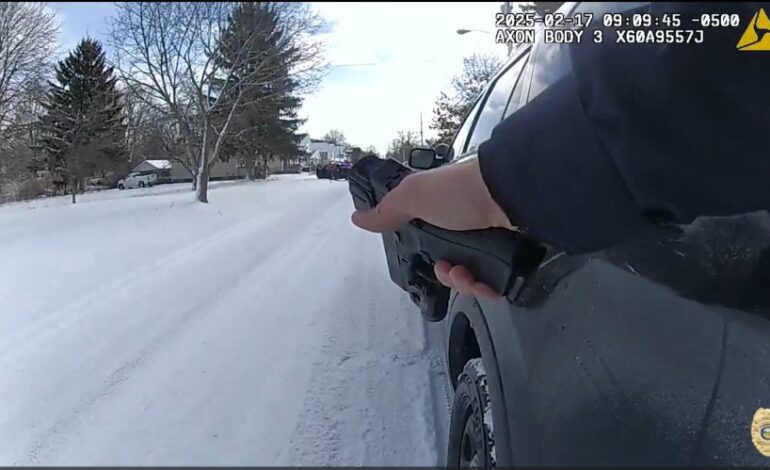Pocatello Body Cam Unveils Tragic Shooting of Autistic Teen

Beneath the flicker of crimson and cobalt, a harrowing encounter unfolds like a modern-day requiem. In the late hours of April 4, Pocatello police officers responded to a 911 call about a 17‑year‑old autistic teen wielding a knife outside his family home. When Pocatello Police Department publicly shared the body cam video on April 18, TMZ first spotlighted the footage, later corroborated by NBC News and ABC affiliate KIFI, exposing every tense heartbeat of this fatal confrontation.
What the grainy, night‑vision visuals reveal is a ballet of commands and confusion: officers shouting “Drop it!” while the teen—hands trembling around a kitchen blade—takes hesitant steps forward. As the distance narrows to mere yards, one voice crackles over the radio, “He’s still advancing,” echoing the department’s official statement released to People Magazine. The clip reaches its crescendo in a flurry of gunfire: five shots ring out in under two seconds, the teen collapses, and medics rush in, sirens whimpering in the background.
According to Police Chief Tom Johnson’s interview with NBC News, the decision to fire was made after multiple warnings went unheeded. Yet advocates from the Autistic Self Advocacy Network argue the young man’s sensory overload and communication barriers were never fully addressed on scene. KIFI’s report notes no nonlethal options—like a bean bag shotgun or Taser—were deployed, despite policies encouraging de‑escalation when dealing with vulnerable individuals.
Footage from Officer Reynolds’ helmet cam shows the teen’s eyes darting, confusion etched across his face—a portrait of panic more than menace. “He never looked like he meant to kill anyone,” murmurs Reynolds in a post‑shooting debrief obtained by TMZ. Medical examiner records, filed the following day, list the cause of death as multiple gunshot wounds to the torso. The department’s internal affairs unit has launched a routine investigation; the Bannock County Prosecutor’s Office confirms a parallel inquiry is underway, as reported by The Idaho Statesman.
Community reaction has been swift: protesters gathered outside city hall on April 20, waving banners that read “Protect, Don’t Shoot” and “Mental Health Matters.” Civil rights attorney Jenna Marsh, quoted in the Idaho Press-Tribune, plans to file a wrongful death suit on behalf of the teen’s family.
In poetic dissonance, body cam audio captures the boy’s final breaths mingling with the officers’ frantic radio chatter—a stark reminder that tragedy sometimes arrives on silent wings. The footage serves as both evidence and elegy, raising urgent questions about law enforcement’s readiness to face neurodiversity.
And so, this night’s staccato of shots fades into policy memos and court filings. Will training evolve? Will accountability follow? Only the next chapter will tell, inked in body cam pixels and public scrutiny.
Sources: Celebrity Storm and TMZ, NBC News, ABC affiliate KIFI, People Magazine, The Idaho Statesman, Idaho Press‑Tribune
Attribution: Creative Commons Licensed




